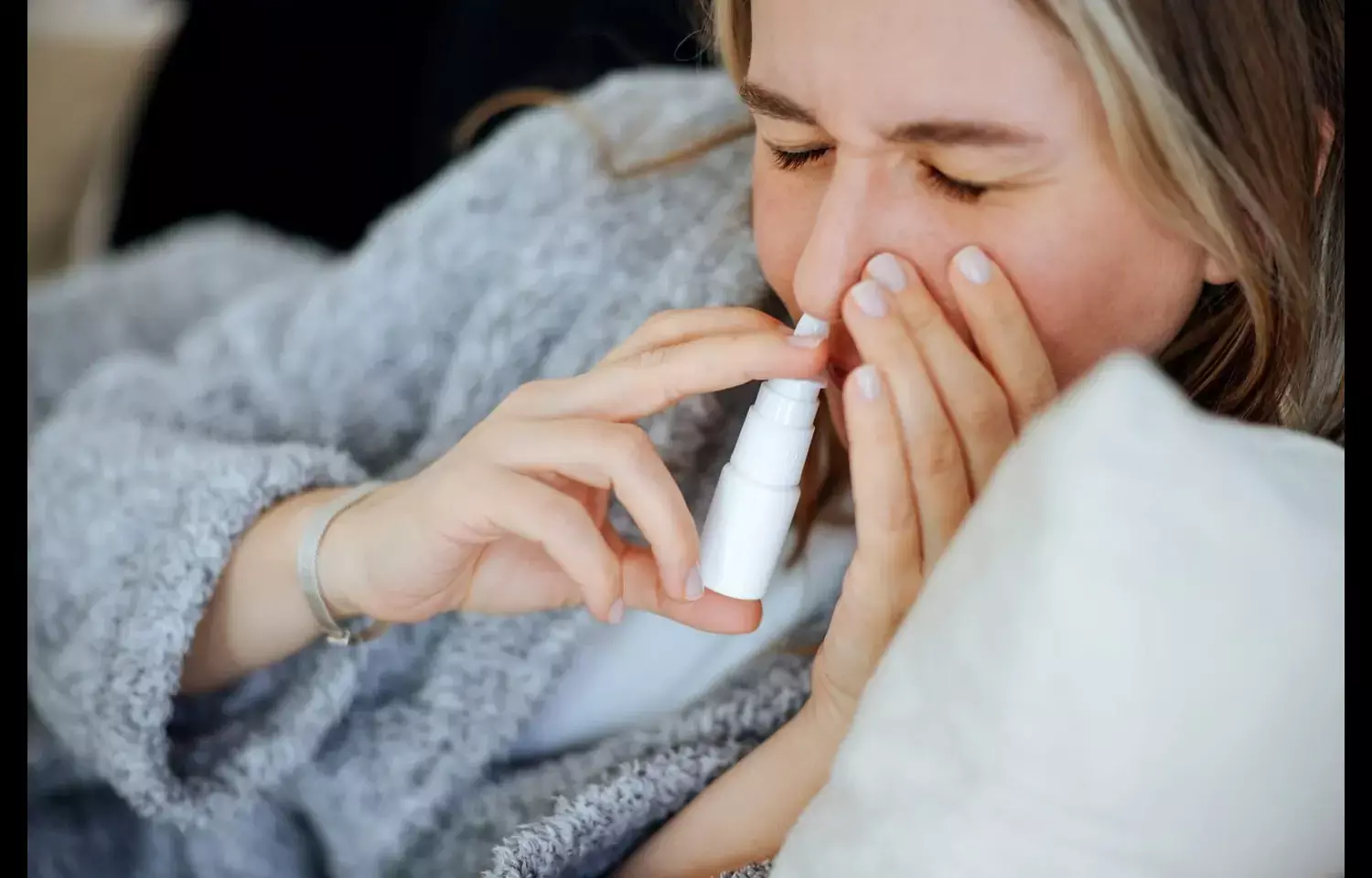- Home
- Medical news & Guidelines
- Anesthesiology
- Cardiology and CTVS
- Critical Care
- Dentistry
- Dermatology
- Diabetes and Endocrinology
- ENT
- Gastroenterology
- Medicine
- Nephrology
- Neurology
- Obstretics-Gynaecology
- Oncology
- Ophthalmology
- Orthopaedics
- Pediatrics-Neonatology
- Psychiatry
- Pulmonology
- Radiology
- Surgery
- Urology
- Laboratory Medicine
- Diet
- Nursing
- Paramedical
- Physiotherapy
- Health news
- Fact Check
- Bone Health Fact Check
- Brain Health Fact Check
- Cancer Related Fact Check
- Child Care Fact Check
- Dental and oral health fact check
- Diabetes and metabolic health fact check
- Diet and Nutrition Fact Check
- Eye and ENT Care Fact Check
- Fitness fact check
- Gut health fact check
- Heart health fact check
- Kidney health fact check
- Medical education fact check
- Men's health fact check
- Respiratory fact check
- Skin and hair care fact check
- Vaccine and Immunization fact check
- Women's health fact check
- AYUSH
- State News
- Andaman and Nicobar Islands
- Andhra Pradesh
- Arunachal Pradesh
- Assam
- Bihar
- Chandigarh
- Chattisgarh
- Dadra and Nagar Haveli
- Daman and Diu
- Delhi
- Goa
- Gujarat
- Haryana
- Himachal Pradesh
- Jammu & Kashmir
- Jharkhand
- Karnataka
- Kerala
- Ladakh
- Lakshadweep
- Madhya Pradesh
- Maharashtra
- Manipur
- Meghalaya
- Mizoram
- Nagaland
- Odisha
- Puducherry
- Punjab
- Rajasthan
- Sikkim
- Tamil Nadu
- Telangana
- Tripura
- Uttar Pradesh
- Uttrakhand
- West Bengal
- Medical Education
- Industry
3% Hypertonic Saline Nasal Irrigation Eases Allergic Rhinitis Symptoms but Not Superior to Isotonic Saline: Study

A new study published in the journal of Allergologia et immunopathologia showed that although there was no discernible improvement over isotonic saline, 3% hypertonic saline nasal irrigation decreased nasal symptoms and antihistamine usage in individuals with allergic rhinitis.
There is ongoing discussion on the relative effectiveness of 0.9% isotonic saline and 3% hypertonic saline nasal irrigation (HSNI). Thus, this study evaluated the effectiveness of HSNI as a therapeutic strategy for both adults and children with AR.
From the beginning until May 8, 2024, a comprehensive search of Scopus, PubMed, and Cochrane Central was conducted to find randomized controlled trials (RCTs) that compared 3% HSNI with control. Antihistamine usage and overall nasal symptom ratings were the main outcomes. They used a random effects model to pool mean differences and odds ratios (OR) with 95% CI, and they used I2 to measure heterogeneity. The inclusion criteria were satisfied by 9 RCTs with 645 patients. The follow-up period was 4 weeks to 2 months.
Adults were 35.49 years old on average, while children were 9.3 years old. In both adults (MD = −2.09; 95% CI: −3.86 to −0.33; P = 0.02; I2 = 97%) and children (MD = −0.97; 95% CI: −1.51 to −0.44; P = 0.0004; I2 = 42%), HSNI substantially decreased nasal symptom ratings when compared to control.
While there was no discernible difference between HSNI and isotonic saline alone (OR = 0.69; 95% CI: 0.41–1.16; P = 0.16; I2 = 0%), antihistamine usage was likewise lower with HSNI than control (OR = 0.39; 95% CI: 0.21–0.70; P = 0.002; I2 = 14%). Across all age categories, HSNI seems to be successful in lowering allergic rhinitis symptoms and medication use.
Overall, the potential advantages of HSNI in managing AR are highlighted by this systematic review and meta-analysis, especially in terms of lowering nasal symptoms and perhaps lowering the need for antihistamines. Because HSNI is nonpharmacological and has a good safety record, it might be a useful therapy adjunct.
To standardize irrigation procedures, identify ideal saline concentrations, and elucidate the function of HSNI in conjunction with traditional pharmaceutical therapies, large-scale randomized controlled studies are required in the future. Clinicians may provide AR patients a straightforward, efficient, and well-tolerated intervention to enhance their quality of life by honing nasal irrigation techniques.
Source:
Singh, N., Singh, S., Sharma, A. K., Singh, U., Bhatnagar, V., & Singh, V. (2025). Efficacy of hypertonic saline nasal irrigation in allergic rhinitis: A systematic review and meta-analysis. Allergologia et Immunopathologia, 53(5), 164–178. https://doi.org/10.15586/aei.v53i5.1409
Neuroscience Masters graduate
Jacinthlyn Sylvia, a Neuroscience Master's graduate from Chennai has worked extensively in deciphering the neurobiology of cognition and motor control in aging. She also has spread-out exposure to Neurosurgery from her Bachelor’s. She is currently involved in active Neuro-Oncology research. She is an upcoming neuroscientist with a fiery passion for writing. Her news cover at Medical Dialogues feature recent discoveries and updates from the healthcare and biomedical research fields. She can be reached at editorial@medicaldialogues.in
Dr Kamal Kant Kohli-MBBS, DTCD- a chest specialist with more than 30 years of practice and a flair for writing clinical articles, Dr Kamal Kant Kohli joined Medical Dialogues as a Chief Editor of Medical News. Besides writing articles, as an editor, he proofreads and verifies all the medical content published on Medical Dialogues including those coming from journals, studies,medical conferences,guidelines etc. Email: drkohli@medicaldialogues.in. Contact no. 011-43720751


